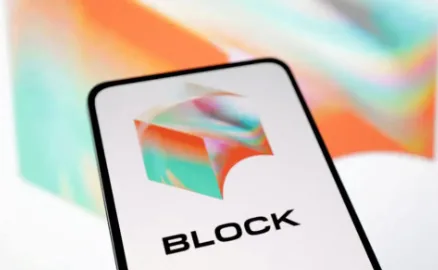MicroStrategy has expanded its Bitcoin holdings significantly, despite reporting substantial quarterly losses. Simultaneously, The Digital Chamber is advocating for US lawmakers to support a new Bitcoin reserve bill, aiming to bolster the nation's financial resilience. Additionally, Block Inc., under the leadership of Jack Dorsey, has reported a significant increase in Bitcoin revenue, contributing to its overall financial growth in the second quarter of 2024.

MicroStrategy Increases Bitcoin Holdings Despite Posting Quarterly Losses
In a bold move reflecting its unwavering commitment to Bitcoin, business intelligence firm MicroStrategy has announced the acquisition of an additional 12,222 Bitcoin for $805 million during the second quarter of this year. This purchase brings the firm's total Bitcoin holdings to a staggering 226,500 BTC, valued at approximately $14.7 billion at current market prices.
Despite the significant investment in Bitcoin, MicroStrategy's financial performance in the second quarter fell short of analyst expectations. During the company's Q2 earnings call, it reported a quarterly revenue of $111.4 million, marking a 7% decline compared to the same period last year. This figure was below the projected $119.3 million revenue, as per a Bloomberg survey.
Additionally, the firm posted substantial losses of $5.74 per share, significantly missing the analyst forecast of a $0.78 per share loss. This disappointing performance is partly attributed to the firm's aggressive Bitcoin acquisition strategy, which has been a double-edged sword in terms of financial stability.
MicroStrategy's net loss for Q2 stood at $123 million, a slight improvement from the $137 million net loss reported in the same quarter last year. The firm's continued investment in Bitcoin, despite these losses, shows its long-term belief in the crypto's potential as a store of value.
The company disclosed that its total Bitcoin holdings, amounting to 226,500 BTC, were acquired at an aggregate cost of $8.5 billion, equating to an average purchase price of $36,821 per Bitcoin. This strategic acquisition has positioned MicroStrategy as one of the largest corporate holders of Bitcoin globally.
Introduction of Bitcoin Yield as a Key Performance Indicator
In a bid to provide more clarity on its Bitcoin strategy, MicroStrategy introduced a new key performance indicator (KPI) termed “Bitcoin Yield.” This KPI measures the percentage change over time in the ratio between the firm's Bitcoin holdings and its diluted outstanding shares. The company reported a BTC yield of 12.2% year-to-date and aims for an annual rate of 4% to 8% over the next three years.
"The Company uses BTC Yield as a KPI to help assess the performance of its strategy of acquiring Bitcoin in a manner the Company believes is accretive to shareholders," MicroStrategy stated. This KPI is intended to offer investors a clearer picture of how the firm's Bitcoin holdings contribute to shareholder value.
MicroStrategy also confirmed that its 10:1 stock split, initially announced on July 11, would take effect on Aug. 7. This move is anticipated to make the company's shares more accessible to a broader range of investors.
Looking ahead, the firm revealed plans to file a registration form for a $2 billion at-the-market equity offering. While MicroStrategy did not specify the intended use of the capital, historical trends suggest it may be directed towards further Bitcoin purchases.
Following the release of its Q2 earnings report, MicroStrategy's shares were trading at $1,500, reflecting a 6% drop during the day. However, the stock saw a modest recovery, gaining 1.1% in after-hours trading, according to TradingView data.
The Digital Chamber Urges US Lawmakers to Support Bitcoin Reserve Bill
The Digital Chamber, a leading digital asset advocacy group, has called on American legislators to support the newly introduced Bitcoin reserve bill by Wyoming Senator Cynthia Lummis. This initiative, aimed at solidifying the nation's position as a global financial leader, has sparked considerable interest among cryptocurrency enthusiasts and policymakers alike.
On Aug. 1, The Digital Chamber announced via a post on X that it is personally delivering a letter to each US Senator. The letter outlines the benefits of integrating Bitcoin into the US balance sheet, emphasizing how this move can enhance economic stability amid global uncertainties. By adopting Bitcoin, the letter argues, the US can secure a strategic advantage in the rapidly evolving digital economy.
Senator Lummis introduced the Boosting Innovation, Technology, and Competitiveness through Optimized Investment Nationwide Act of 2024 (or Bitcoin Act of 2024) on July 31. This landmark bill proposes that the US Treasury establish Bitcoin vaults and acquire 1 million Bitcoin over a five-year period. The goal is to leverage Bitcoin's unique properties to hedge against inflation and economic volatility.
In the letter to the Senators, The Digital Chamber’s Chief Policy Officer, Cody Carbone, emphasized Bitcoin’s hard-cap supply of approximately 21 million units. Carbone highlighted that this scarcity makes Bitcoin resistant to inflationary pressures, offering a robust alternative to traditional fiat currencies. He stated, "By reducing our reliance on traditional fiat currencies and diversifying our reserves, we can create a more robust and adaptable financial system that is better equipped to navigate future economic challenges."
The timing of this advocacy effort is notable, as it comes shortly after the US national debt surpassed the $35 trillion mark. This fiscal milestone has intensified discussions on innovative financial strategies, with Bitcoin emerging as a viable option for many policymakers.
Senator Lummis is not alone in her advocacy for Bitcoin. During the recent Bitcoin 2024 conference in Nashville, independent candidate Robert F. Kennedy Jr. pledged to make the US Treasury buy 500 Bitcoin daily until it amassed at least 4 million Bitcoin. Similarly, Republican candidate Donald Trump announced his plans to build a strategic national Bitcoin stockpile.
Growing Bipartisan Support
The US has seen increasing bipartisan support for cryptocurrency-related initiatives in recent months. The Financial Innovation and Technology for the 21st Century Act, which passed the House on May 22 with substantial bipartisan backing, is now awaiting a Senate vote. Furthermore, both legislative chambers recently voted to overturn the US securities regulator’s Staff Accounting Bulletin 121 rule. Although President Joe Biden vetoed the measure, the growing legislative interest in cryptocurrency is evident.
Industry experts suggest that passing SAB 121 would have facilitated US banks in custodian cryptocurrency exchange-traded products, further integrating digital assets into mainstream financial services. The ongoing legislative developments indicate a promising trend towards more comprehensive regulatory frameworks for digital assets.
The Digital Chamber's advocacy for the Bitcoin reserve bill represents a pivotal moment in the intersection of cryptocurrency and traditional finance. By urging US lawmakers to embrace Bitcoin, the group aims to position the United States at the forefront of global financial innovation. As the debate unfolds, the potential for Bitcoin to play a central role in the nation’s economic strategy becomes increasingly apparent.

Block Inc. Reports Strong Q2 2024 Earnings with Significant Bitcoin Revenue Growth
Jack Dorsey's payment conglomerate, Block Inc., has released its second-quarter earnings for 2024, showcasing notable growth in both Bitcoin revenue and overall financial performance. The earnings report highlights a 9% year-over-year increase in Bitcoin revenue, reflecting the company's strategic focus on integrating cryptocurrency into its operations.
According to the shareholder letter, Block's Bitcoin revenue reached $2.61 billion during Q2 2024. This substantial figure contributed to the company's total net revenue of $6.16 billion for the quarter, representing an 11% increase compared to the same period in 2023. Excluding Bitcoin income, Block's revenue stood at $3.54 billion, marking a 13% year-over-year growth.
A significant driver of Block's revenue was its popular mobile payment service, Cash App, which generated $4.13 billion in revenue for the quarter. Excluding gains from Bitcoin transactions, Cash App's revenue was $1.52 billion. The app also posted an impressive $67 million in Bitcoin gross profit, a 52% increase from the same period last year. This growth in Bitcoin gross profit was primarily attributed to the rise in the average price of Bitcoin, which has surged over 45% in 2024, currently trading at $64,777.
Bitcoin Holdings and Gross Profit
Block's gross profit for Q2 2024 rose by 20% year-over-year, reaching $2.23 billion. Net income attributable to common shareholders was $195 million, nearly doubling the $102 million reported in the same quarter last year. Despite the positive financial results, Block reported a $70 million loss from its Bitcoin holdings. As of June 30, 2024, the company held approximately 8,211 BTC on its balance sheet, valued at $515 million. During the quarter, Block acquired an additional 173 BTC.
In May, Block announced plans to raise $2 billion in senior unsecured notes targeted at qualified institutional investors. The company ended Q2 2024 with $10.3 billion in available liquidity, including the net proceeds from this debt offering. According to Block, the funds from the debt sale will be allocated towards debt repayment, acquisitions, strategic transactions, capital expenditures, investments, and working capital.
Block's Q2 earnings report shines the spotlight on the company's successful integration of Bitcoin into its financial ecosystem, leveraging the cryptocurrency's growth to enhance its overall revenue and profit margins. The continued expansion of Cash App's revenue, especially from Bitcoin transactions, highlights the app's significant role in Block's growth strategy.
